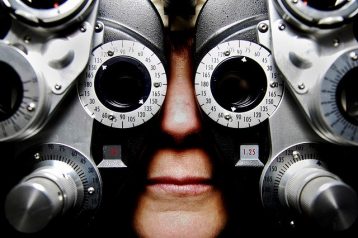The number of Americans with diabetic retinopathy is expected to nearly double from 7.7 million to 14.6 million.
“This is a serious health issue for millions of working age adults today and more than twice as many in the future,”
Jesse Slome, director of the American Association of Critical Illness Insurance
Drops could treat blindness new research finds, June 29, 2020. Researchers at Columbia University’s Irving Medical Center have developed eye drops. The drops could prevent vision loss after retinal vein occlusion. This is a major cause of blindness for millions of adults worldwide.
The study was published in Nature Communications. According to the report, the researchers studied the impact on mice. Their findings suggest that the experimental therapy could have broader therapeutic effects than existing drugs.
According to the report in Science Daily, retinal vein occlusion occurs when a major vein that drains blood from the retina is blocked. It notes that this is usually due to a blood clot. As a result, blood and other fluids leak into the retina, damaging specialized light-sensing neurons called photoreceptors.
The report goes on to say that standard treatment for the condition currently relies on drugs. These reduce fluid leakage from blood vessels and abnormal blood vessel growth. But, the report notes, that there are significant drawbacks. These therapies require repeated injections directly into the eye, and for the patients who brave this daunting prospect, the treatment ultimately fails to prevent vision loss in the majority of cases.
The new treatment targets an enzyme called caspase-9, says Carol M. Troy, MD, PhD, who led the studies. Under normal conditions, caspase-9 is believed to be primarily involved in programmed cell death, a tightly regulated mechanism for naturally eliminating damaged or excess cells. However, in studies of mice, they discovered that a highly selective caspase-9 inhibitor, delivered in the form of eye drops, improved a variety of clinical measures of retinal function. Most importantly, the treatment reduced swelling, improved blood flow, and decreased neuronal damage in the retina.
Blindness may be covered by critical illness insurance
Drops could treat blindness: “Based on one study an estimated that 16.4 million adults are affected by retinal vein occlusions,” notes Jesse Slome, director of the American Association for Critical Illness insurance. “Blindness can be one of the covered conditions covered by a good critical illness insurance policy.”
“Few individuals between ages 40 and 60 are are prepared for the consequences of an illness like this let alone the devastating consequences of blindness,” Slome acknowledges. “We wish the researchers well as their work continues towards a treatment that can benefit millions of adults.” The expert suggests more consumers learn what critical illness insurance covers. “The coverage in small amounts like $10,000 and $15,000 can be far more affordable than people estimate.”

Source: Science Daily, June 29, 2020
Photo Credit: Pixabay
Want More Healthy Helps? Follow Us on Facebook.


